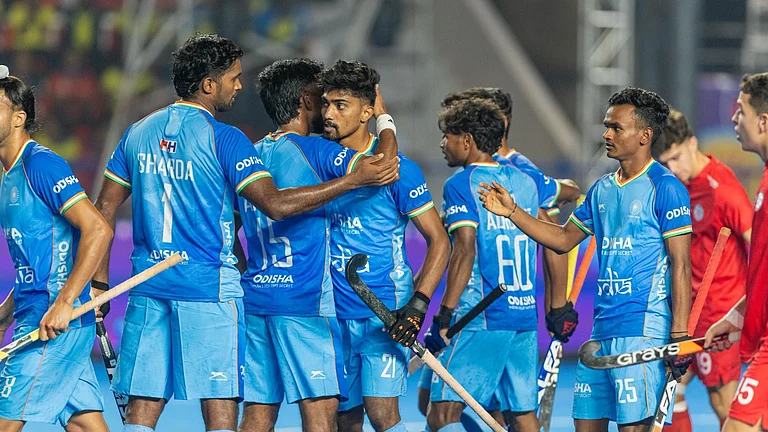
A stack of books sits on a counter separating the Jeraths’ dining room from theirliving room. The books are all modern-day American scriptures such as The River isMine, The Seat of the Soul and The 12 Stages of Healing. Across the room isa large, garlanded portrait of Prem Nath Jerath, a structural engineer who worked for thePort Authority. Meena Jerath turns to the books from time to time, as a means of easingthe sorrow of losing her husband. In the last year, she and her 20-year-old son Neel havebeen desperately searching for relief.
In the beginning, says Meena, they had faith in God. She often retreated to the pujaroom, a converted closet attached to the master bedroom upstairs, where she prayed allday. But it only raised more questions. "You think, ‘We did good deeds and weare honest and we’ll live a good life’," she muses. "Why did thishappen"?
In June and July, they even went on pilgrimages throughout India, as also to Pehowa inHaryana, meant for those whose relatives didn’t die a normal death. The night beforehe and his mother left for India, Neel broke down, haunted by the persistent image of aniron bar going through his father’s chest. They also went to Haridwar, but the crowdand atmosphere overwhelmed them. "It just felt like a sequence of events thatdidn’t help," says he. Where he did draw comfort, he adds, was in the personalcontact with relatives.
He says it is mildly therapeutic to talk about his loss. When Prem was alive, they hadbeen an extremely private family—at one point even the fact of Prem’s nightlypursuit of an mba at nyu’s Stern School of Business was kept under wraps. Now Neeland his mother are open about their lives.
Recently, Neel has taken to watching the Nightly Business Report on TV, andreading Adam Smith’s Wealth of Nations, turning to a subject he had littleinterest in. The trauma of his father’s death saw him perform poorly in two semestersat Brandeis, a premier university in Massachusetts. Turning to subjects his father lovedmost, Neel thinks, is the best way he can turn himself around. "I’m trying toredeem myself, and trying to redeem myself in my father’s eyes as well," hesays.
Neel is back home now, and will attend a local college this fall. This way, he and hismother will be together, and they intend to pick up the pieces as best they can."It’s just about enjoying our own company," says Neel, as his mother nodsher head, "and not putting on appearances".
But their agony hasn’t turned them vengeful. When the federal authorities askedMeena about her opinion on the court case of Zacarias Massaoui, the alleged 20th hijacker,she told them she didn’t believe in capital punishment. "I think he should sitin the smallest possible cell and repent and apologise to each of the families,"Meena says. And Neel agrees, "Sometimes logic fails us but it just seems wrong forthe state to kill people."

























